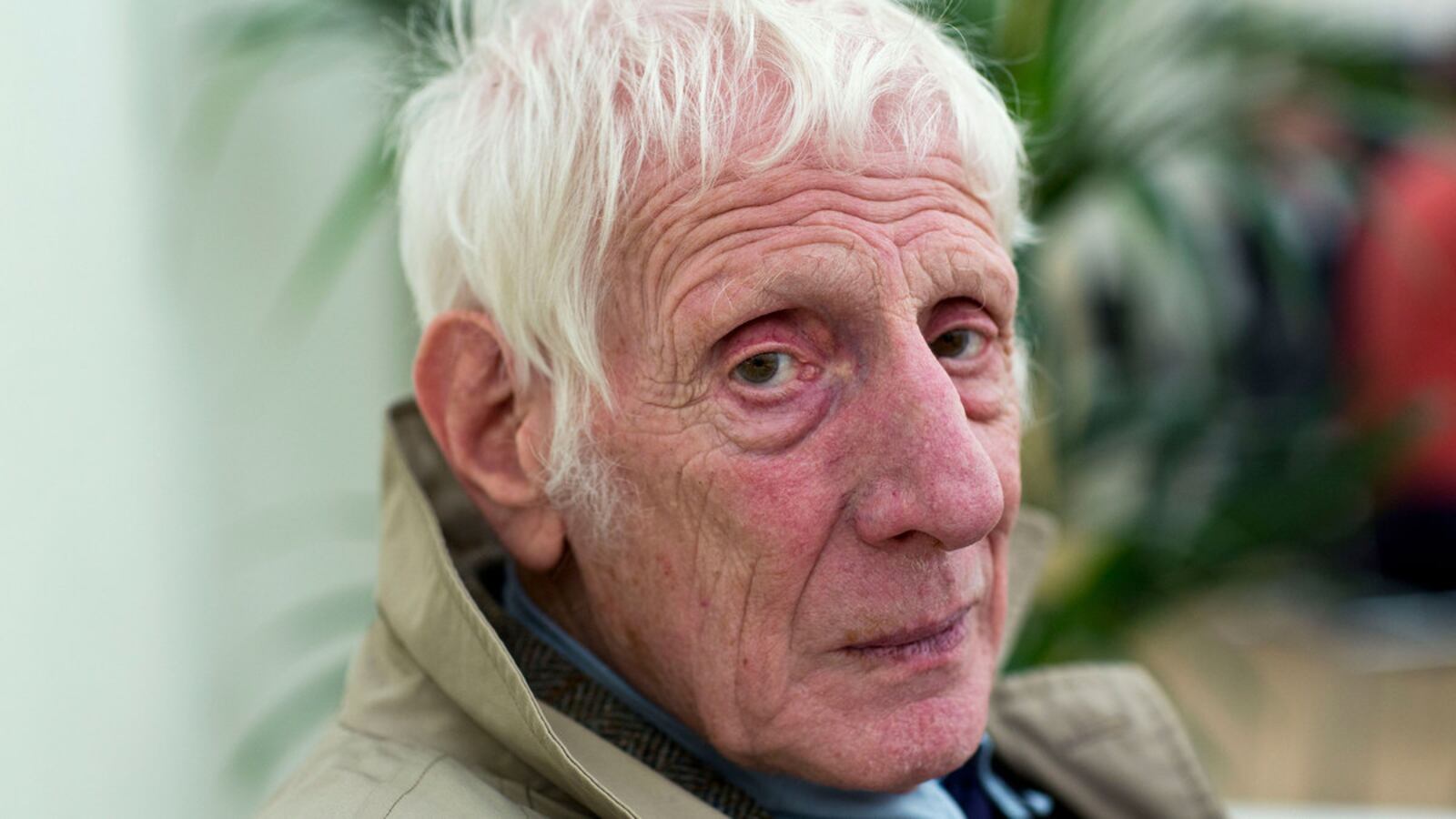Four young men met in a café in London in January 1960. They would change the tone and style of British comedy forever.
Two of them, Peter Cook and Jonathan Miller, who has died at the age of 85, already knew each other. The others were Alan Bennett and Dudley Moore.
They were brought together by a producer who proposed that they perform in a revue named Beyond The Fringe at the Edinburgh Festival that summer.
None of them was an established performer, and yet they already had egos that made them wary of each other.
“We were all jealously guarding our own little province,” Miller recalled later, “We were tremendously suspicious of one another and very competitive.”
Miller, Bennett, and Cook were tall and Dudley Moore was very short. “They were all six feet two and I was five feet two” said Moore, adding “I was completely mute in front of these intellectual giants.”
Compensating for his sense of inadequacy, Moore at one point left the table and did a Groucho Marx funny bent-kneed walk behind a waitress that revealed a natural talent for physical comedy.
The strange, spontaneous chemistry of this quartet turned out to be one of those accidents of fusion that that creates a burst of creative energy as astonishing as it was unpredictable—Beyond The Fringe eventually went to Broadway and became the inspiration for the wave of insubordinate satire that shook up British culture in the 1960s and ultimately crossed the Atlantic to inspire the creation of shows like Saturday Night Live.

August 17, 1964: Comedians Alan Bennett, Peter Cook, Dudley Moore, and Jonathan Miller filming ‘Beyond the Fringe’ at the BBC.
Terry DisneyOf the quartet, Jonathan Miller was the true polymath and, perhaps, the most complicated personality.
When he arrived at Cambridge University in 1953 somebody described him as “built like an Anglepoise lamp.” He was an almost uncontainable amalgam of intellectual curiosity and physical contortionist, self-conscious about his height while every inch of it was kept independently in motion: Legs, arms, head.
In fact, Miller was torn between two possible career paths: neuroscience or satirical comedy. He went to Cambridge as a medical student but left as a trainee doctor and an acclaimed comic act—the location of the meeting in London with the other three was dictated by the fact that Miller was on the staff of a nearby hospital.
Miller seemed never to encounter a cohort that he couldn’t almost immediately impersonate to devastating effect. At Cambridge he mingled with disciples of the philosopher Ludwig Wittgenstein, who were, he found, “pursuing the nature and meaning of words.”
Without any effort at all, as though suddenly becoming one of them, Miller could deliver a hysterical parody of high intellectual thought without seeming himself its intellectual inferior.
Miller could with equal facility switch to an Australian accent and parody a promotional travelogue full of eye-watering hyperbole… or impersonate the pomposity of a BBC radio announcer describing a municipal visit by a member of the royal family… or of a portentous cultural critic reviewing an exhibition of “Persian digestive biscuits.”
As the voices were conjured the face, amazingly plastic, would strike suitable attitudes to fit, from moronic blankness to overbearing didacticism.
All four of the Beyond The Fringe cast had exceptional gifts. Two of them, Cook and Moore, created alter egos in a classic TV pastiche, Pete and Dud, with Cook a garrulous bore and Moore his hapless, captive audience. Then Moore went to Hollywood and, improbably, became a box office hit as a romantic leading man in the movie 10. Cook, the most lethal wit among them, had a long, dark and embittered decline, and died in 1995 at the age of 57.
Bennett, like Miller, had the ability to channel definitive British eccentricity and use it powerfully as a playwright, able to go way beyond the ephemera of satire, while Miller himself became a prolific director of theater and opera.
But it was the force and brilliance of their work together in the 1960s that permanently imprinted on British culture a badly needed mockery of all things portentous and too self-regarding—from BBC announcers to prime ministers, from impenetrable philosophers to pub bores.
Jonathan Miller died, aged 85, in London, November 27.







